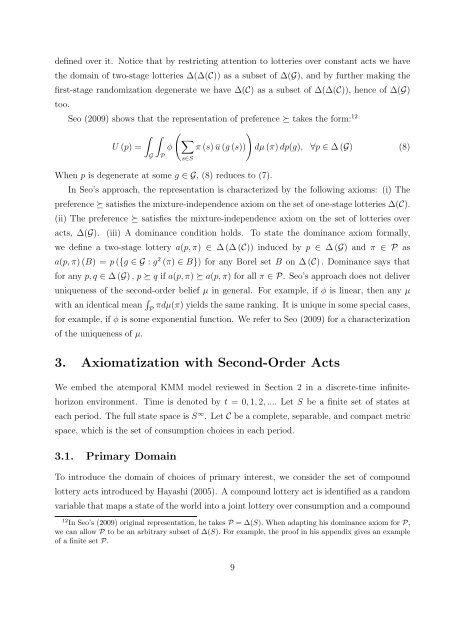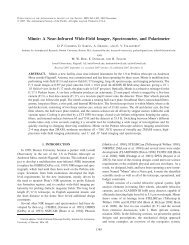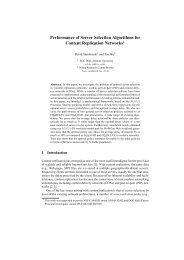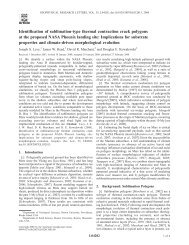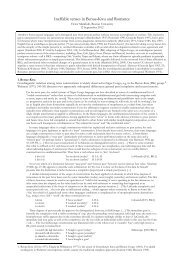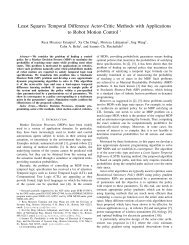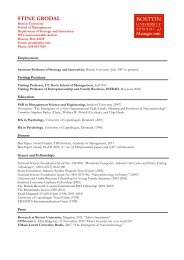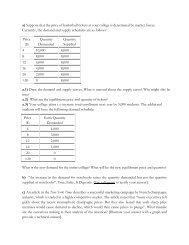Intertemporal Substitution and Recursive Smooth Ambiguity ...
Intertemporal Substitution and Recursive Smooth Ambiguity ...
Intertemporal Substitution and Recursive Smooth Ambiguity ...
Create successful ePaper yourself
Turn your PDF publications into a flip-book with our unique Google optimized e-Paper software.
defined over it. Notice that by restricting attention to lotteries over constant acts we havethe domain of two-stage lotteries ∆(∆(C)) as a subset of ∆(G), <strong>and</strong> by further making thefirst-stage r<strong>and</strong>omization degenerate we have ∆(C) as a subset of ∆(∆(C)), hence of ∆(G)too.Seo (2009) shows that the representation of preference ≽ takes the form: 12∫U (p) =G∫Pφ( ∑s∈Sπ (s) ū (g (s))When p is degenerate at some g ∈ G, (8) reduces to (7).)dµ (π) dp(g), ∀p ∈ ∆ (G) (8)In Seo’s approach, the representation is characterized by the following axioms: (i) Thepreference ≽ satisfies the mixture-independence axiom on the set of one-stage lotteries ∆(C).(ii) The preference ≽ satisfies the mixture-independence axiom on the set of lotteries overacts, ∆(G). (iii) A dominance condition holds. To state the dominance axiom formally,we define a two-stage lottery a(p, π) ∈ ∆ (∆ (C)) induced by p ∈ ∆ (G) <strong>and</strong> π ∈ P asa(p, π) (B) = p ({g ∈ G : g 2 (π) ∈ B}) for any Borel set B on ∆ (C) . Dominance says thatfor any p, q ∈ ∆ (G) , p ≽ q if a(p, π) ≽ a(p, π) for all π ∈ P. Seo’s approach does not deliveruniqueness of the second-order belief µ in general. For example, if φ is linear, then any µwith an identical mean ∫ πdµ(π) yields the same ranking. It is unique in some special cases,Pfor example, if φ is some exponential function. We refer to Seo (2009) for a characterizationof the uniqueness of µ.3. Axiomatization with Second-Order ActsWe embed the atemporal KMM model reviewed in Section 2 in a discrete-time infinitehorizonenvironment. Time is denoted by t = 0, 1, 2, .... Let S be a finite set of states ateach period. The full state space is S ∞ . Let C be a complete, separable, <strong>and</strong> compact metricspace, which is the set of consumption choices in each period.3.1. Primary DomainTo introduce the domain of choices of primary interest, we consider the set of compoundlottery acts introduced by Hayashi (2005). A compound lottery act is identified as a r<strong>and</strong>omvariable that maps a state of the world into a joint lottery over consumption <strong>and</strong> a compound12 In Seo’s (2009) original representation, he takes P = ∆(S). When adapting his dominance axiom for P,we can allow P to be an arbitrary subset of ∆(S). For example, the proof in his appendix gives an exampleof a finite set P.9


